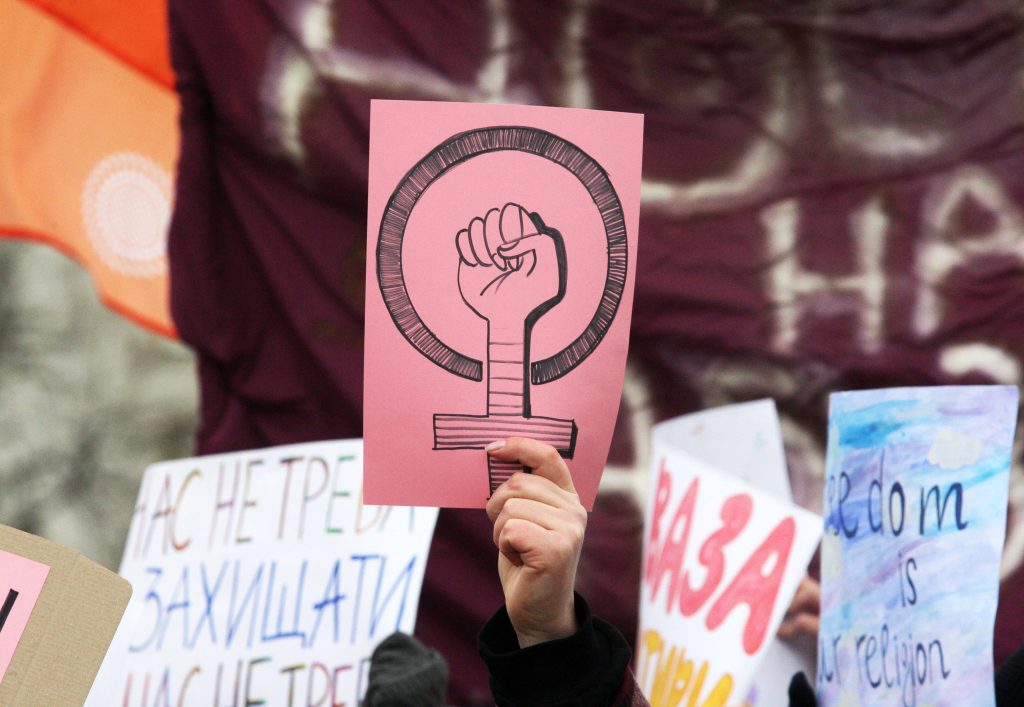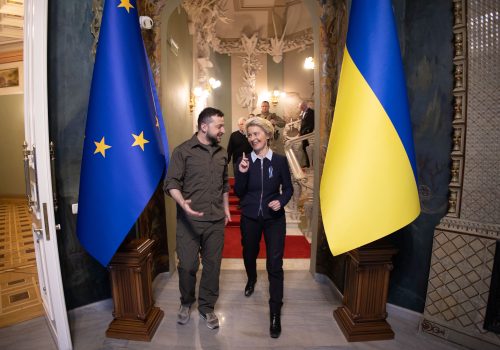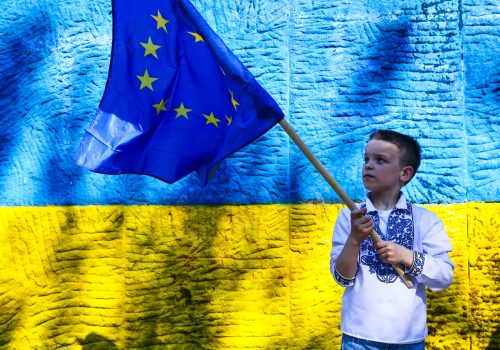Ukrainian MPs voted on June 20 to ratify the Istanbul Convention, which is widely recognized as the most far-reaching international treaty addressing violence against women and domestic violence. Ratification marks another step forward in Ukraine’s European integration and underlines Ukrainian determination to continue the country’s transformation despite the huge challenges posed by the ongoing war with Russia.
The move was hailed as an “historic victory for women’s rights in Ukraine” by Amnesty International Secretary General Agnès Callamard. “This decision could not be more timely amid disturbing reports and allegations of sexual violence against Ukrainian women in Russian-occupied territories,” commented Callamard. “Prompt implementation should equip the Ukrainian authorities to deal with these atrocities, and serve to reassure the survivors and give them confidence to seek justice.”
For many Ukrainians, ratification is seen as long overdue. Ukraine signed the Istanbul Convention more than a decade ago in 2011. This landmark human rights treaty was then ratified by a long list of European countries but the process stalled in Ukraine itself.
The first attempt to ratify the Istanbul Convention came in 2016 but fell short due to a lack of support from Ukrainian MPs. Commenting on this failure, some MPs made reference to concerns among religious organizations such as the Council of Churches over the use of the word “gender” in the text of the Convention. This was particularly disappointing as Ukrainian anti-discrimination and labor laws had employed the same terminology since 2005.
Stay updated
As the world watches the Russian invasion of Ukraine unfold, UkraineAlert delivers the best Atlantic Council expert insight and analysis on Ukraine twice a week directly to your inbox.
Non-ratification in 2016 sparked calls for Ukrainian civil society to engage with MPs on gender-related topics in order to address outdated stereotypes. However, the setback also highlighted disquiet within some conservative segments of Ukrainian society over changing attitudes toward gender issues and consequent fears among MPs that support for progressive legislation could ultimately cost them votes.
Despite these traditionalist concerns, some steps were taken to address the problem of domestic violence by introducing changes to the Criminal Code of Ukraine and adopting a range of other measures. Innovations included the creation of dedicated response teams within Ukrainian law enforcement focused specifically on domestic violence.
This progress was seen as welcome but insufficient. Meanwhile, many continued to press for ratification of the Istanbul Convention. Petitions addressing the president on the issue garnered considerable support, while demands to ratify the Convention became a key feature of Ukraine’s annual Women’s March and other events promoting women’s rights.
With calls growing in Ukrainian society for greater efforts to combat domestic and gender-based violence, bastions of social conservatism have been forced to acknowledge the need for more action. While some religious groups have continued to oppose ratification, recent declarations have mentioned efforts to create shelters for survivors of domestic violence.
Eurasia Center events

Russia’s full-scale invasion of February 2022 dramatically altered the context underpinning the debate over ratification of the Istanbul Convention. While some sections of Ukrainian society remain suspicious of progressive approaches to family and gender issues, the need to demonstrate Ukraine’s commitment to the core European values of equality and human rights has become paramount.
It is no coincidence that ratification finally took place just days before European Union leaders are due to convene in Brussels to discuss granting Ukraine EU candidate nation status. Clearly, Ukraine is eager to underline the fact that it shares the EU commitment to combating domestic violence and deserves to be recognized as a potential future member state.
Ukraine’s EU candidate bid has bolstered earlier efforts by Ukrainian civil society to promote ratification of the Istanbul Convention. Ukrainian feminists, human rights activists, lawyers, and NGOs all made vital contributions.
While geopolitical factors appear to have played a significant role in the timing of ratification, the ultimate beneficiaries will be ordinary Ukrainians. Ratifying the Istanbul Convention will help create a whole new framework reducing the potential for domestic violence and other forms of gender-based violence. Ukrainian women will be better protected and perpetrators will stand a far greater chance of facing justice.
Iryna Slavinska is Executive Producer at Radio Culture.
Further reading
The views expressed in UkraineAlert are solely those of the authors and do not necessarily reflect the views of the Atlantic Council, its staff, or its supporters.

The Eurasia Center’s mission is to enhance transatlantic cooperation in promoting stability, democratic values and prosperity in Eurasia, from Eastern Europe and Turkey in the West to the Caucasus, Russia and Central Asia in the East.
Follow us on social media
and support our work
Image: A woman holds a placard during the Women March which is dedicated to International Women's Day in downtown Kyiv. Feminists, LGBT representatives, and human rights activists marched on International Women's Day (IWD) protesting against sexism and violence against women, demanding to the Ukrainian authorities to ratify the Istanbul Convention. (Photo by Pavlo Gonchar / SOPA Images/Sipa USA)




